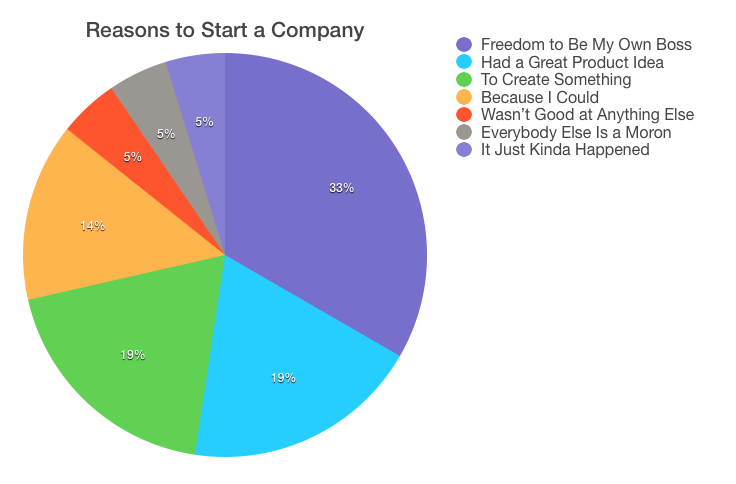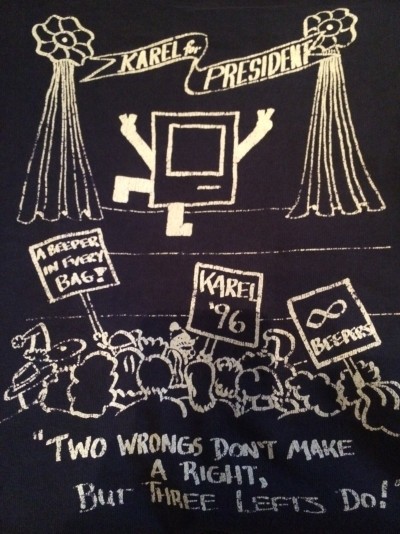 In the UN’s list of oppressed peoples, Condominium Developers are somewhere below adorable kittens. Yet I recently found my politically inactive self speaking in favor of San Francisco’s 7 Hills Developers at a recent Board of Supervisors meeting.
In the UN’s list of oppressed peoples, Condominium Developers are somewhere below adorable kittens. Yet I recently found my politically inactive self speaking in favor of San Francisco’s 7 Hills Developers at a recent Board of Supervisors meeting.
About three blocks from our house is an abandoned paint store. The parking lot is fenced off and overgrown with weeds. Its perimeter is littered with broken bottles and random trash. Last week, I saw a guy taking a piss there in broad daylight. It’s a blight in every sense of the word — even the building itself is a 50’s stucco monstrosity that replaced what was originally a tasteful early 1900’s combination of shops and apartments.
Land is valuable, so of course somebody owns this property. It was sold to 7 Hills, which planned to tear down the paint store and build something more in the original style of the neighborhood with a large storefront (Walgreens) at the street level and condos above. Through working with the neighbors, they spent a year or two refining the plan and agreeing to improve the surrounding sidewalks, plant trees, provide 24 hour security, and change their plans to improve traffic flow.
Of course, it’s San Francisco so no matter how liberal you are, there’s somebody who’s even further left. In this case, lots of people. The Mission Anti-Displacement Coalition is a group whose agenda is to preserve/restore the affordability of the Mission District for the people who have historically lived there. A worthy goal, but sought in an entirely bizarre way. After the condo plan was approved by the Planning Commission, the MAC filed an appeal with the Board of Supervisors, claiming that the Environmental Impact Report had failed to take into account the social impacts that the new development would have.
There is some precedent for this. Apparently in an earlier decision, the Board overturned the Planning Commission’s approval of a project by saying that it would upset the social characteristics of the neighborhood. That decision, if it were allowed to be repeated, would set the precendent that every Planning Commission approval was subject to the Board’s opinion on social impacts, something clearly impossible to quantify.
Support was strong on both sides and not as racially divided as one might think. Arguments supporting the project:
- The site is a high crime area because it has been neglected
- The developer has worked with the community and made many concessions
- Nobody is being displaced — no housing units are being torn down
- The development exceeds the required number of below market rate (BMR) units
- There is no reasonable alternative being proposed
Arguments against the project:
- There are several Walgreens within spitting distance
- This is an opportunity to build a new Day Laborer center and 100% affordable housing
- Luxury condos do not belong in the Mission
- The plan is inconsistent with the city’s overall plan for the Eastern Neighborhoods
The last point in the arguments against was something I was not familiar with. Apparently the city is in the process of adopting an overall plan for neighborhoods such as ours, and apparently it involves lots and lots of low income housing. But it’s not formalized yet and I’d be surprised and terrified it meant that we could *only* build low income housing, so I fail to see its relevance.
Here’s something interesting though: Last year, the owners of the property said that they’d entertain any reasonable offer for someone else to buy the property and build an alternative project. The crux of the argument that the MAC was making was that they had the support to build a 100% affordable housing project, yet nobody was stepping up saying that they had the funds. And the owner of the property said they had received no reasonable offer. So I fail to see the relevance.
It was a tedious and tense Board of Supervisor’s meeting. I left work early to attend and got home around 11pm. Supporters on both sides were organizing community members as they arrived, giving out stickers in support of the project and arranging translators as necessary. There were a large overflow room where you could watch the debate and a play area set up for children.
Voting was postponed because public comment took so long. As I was sitting there watching this, I was both proud to live in San Francisco, where people are politically active and the process is so open, and embarassed. After all, anywhere else in the country, replacing a drug dealing corner with a 24-hour store, more lighting, and housing opportunities for middle income wage earners, would be a no brainer. In most places, the city government would probably kick in a few bucks to get a developer on the project. When I spoke, towards the end, I didn’t really add anything that hadn’t been said 100 times already — choose a Walgreens over an abandoned lot. For me, that’s all it came down to.
So two weeks later, the board meets again to vote. The rumor was that it was pretty close. In the blink of an eye though, it was over. Supervisor Ammiano (our district’s supervisor, who accepted the appeal) made an argument against the project, then another Supervisor (I forget who) called for a vote and it was over — by one vote, the project can proceed. I have to wonder what actually happened behind the scenes. I’m assuming that all the supervisors knew how all the other supervisors were going to vote ahead of time. The supervisors in that immediate area *had* to vote against the project or it would look like they didn’t care about the largest minority (majority?) population of their district. There was probably an element of “Let’s make sure this passes so it doesn’t set a precedent, but I’m going to vote against it.”
So that’s a little taste of San Francisco local politics. Hopefully it’s the last time I get involved.




